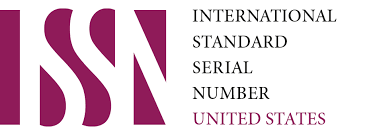Enterprise Architecture Tools Assessment for Smart Cities Governance using Fuzzy Logic Techniques
Keywords:
Smart City, Enterprise Architecture, Information System, Fuzzy LogicAbstract
This paper considers the “smart cities” phenomena as the digital transformation alternative for city governance similar to the digital transformation of enterprises. Therefore, in this paper, we propose to use the Enterprise Architecture (EA) methodology and relevant information systems by considering the city as a large organization. Suggested assessment procedure of government-specific EA tools uses customer experience ratings processed with fuzzy logic techniques.
References
Pourzolfaghar, Zohreh, Viviana Bastidas, and Markus Helfert. “Standardisation of enterprise architecture development for smart cities.” Journal of the Knowledge Economy 11.4 (2020): 1336-1357.
Tanaka, Sergio Akio, Rodolfo Miranda de Barros, and Leonardo de Souza Mendes. “A proposal to a framework for governance of ICT aiming at smart cities with a focus on Enterprise architecture.” Proceedings of the XIV Brazilian symposium on information systems. 2018.
Ismagilova, Elvira, et al. “Smart cities: Advances in research – An information systems perspective.” International Journal of Information Management 47 (2019): 88-100.
Silva, Bhagya Nathali, Murad Khan, and Kijun Han. “Towards sustainable smart cities: A review of trends, architectures, components, and open challenges in smart cities.” Sustainable Cities and Society 38 (2018): 697-713.
Bokolo, Anthony Junior, and Sobah Abbas Petersen. “Fostering smart cities based on an enterprise architecture approach.” ERCIM, 2020.
Berkel, Antonie RR, Prince M. Singh, and Marten J. van Sinderen. “An information security architecture for smart cities.” International Symposium on Business Modeling and Software Design. Springer, Cham, 2018.
“ArchiMate® 3.1 Specification.” Van Haren Publishing, 2020.
Bork, Dominik, et al. “Requirements engineering for model-based enterprise architecture management with ArchiMate.” Workshop on Enterprise and Organizational Modeling and Simulation. Springer, Cham, 2018.
“Enterprise Architecture (EA) Tools Reviews and Ratings.” Gartner Peer Insights. https://www.gartner.com/reviews/market/enterprise-architecture-tools.
Kotusev, Svyatoslav. “Fake and real tools for enterprise architecture.” Br. Comput. Soc.(BCS) (2018).
Gilda, K. S., and S. L. Satarkar. “Analytical overview of defuzzification methods.” Int. J. Adv. Res. Ideas Innov. Technol 6.2 (2020): 359-365.
“Implementation and Migration Elements.” ArchiMate® 3.1 Specification. https://pubs.opengroup.org/architecture/archimate3-doc/chap13.html.
Orlovskyi, Dmytro, and Andrii Kopp. “A Business Intelligence Dashboard Design Approach to Improve Data Analytics and Decision Making.” (2020).
Orlovskyi, Dmytro, and Andrii Kopp. “Enterprise architecture modeling support based on data extraction from business process models.” CMIS. 2020.
Kopp, Andrii, and Dmytro Orlovskyi. “An Approach to Forming Dashboards for Business Process Indicators Analysis using Fuzzy and Semantic Technologies.” PhD@ ICTERI. 2018.
Downloads
Published
Issue
Section
License

This work is licensed under a Creative Commons Attribution-NonCommercial 4.0 International License.
User Rights
Under the Creative Commons Attribution-NonCommercial 4.0 International (CC-BY-NC), the author (s) and users are free to share (copy, distribute and transmit the contribution).
Rights of Authors
Authors retain the following rights:
1. Copyright and other proprietary rights relating to the article, such as patent rights,
2. the right to use the substance of the article in future works, including lectures and books,
3. the right to reproduce the article for own purposes, provided the copies are not offered for sale,
4. the right to self-archive the article.












